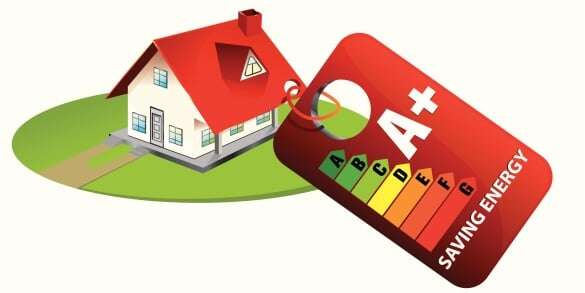 All it usually takes are a few gas bills at the beginning of the cold season for people to wonder, “Is there a better, more economical way to heat my home?” And in places where temperatures are fairly moderate – like Northern California – heat pumps may be an alternative.
All it usually takes are a few gas bills at the beginning of the cold season for people to wonder, “Is there a better, more economical way to heat my home?” And in places where temperatures are fairly moderate – like Northern California – heat pumps may be an alternative.
Still, the case for heat pumps is less than straightforward. Then again, some people might say that the case for furnaces is less than straightforward.
Even if you've gotten “the memo” about heat pumps, it helps to line them up against furnaces and contrast their respective advantages and disadvantages. But first, make sure you understand the fundamentals of each type of heating system.
Heating system 101
Forced-air furnaces heat air by a flame and then push the heated air through ducts and out of heat registers. Natural gas, electricity or oil fuel most furnaces, with gas being the most popular method.
There are two basic types of heat pumps: air-source and geothermal. The former is attached to a wall or is seated above ground to pump heat from the outside air, using electricity. Geothermal, or ground-source, heat pumps absorb heat from either below the ground or from water pumped from below ground.
Advantages of furnaces
- They are generally more expensive than heat pumps.
- They keep working throughout the coldest temperatures, without requiring a backup heating source.
- They can put their predecessors to shame, with efficiency ratings in the high 90s. This means that a furnace that is 97 percent efficient uses 97 percent of its energy to produce or distribute heat.
Disadvantages of furnaces
- Despite their high ratings, furnaces are not as efficient as heat pumps. But this fact should be balanced against the the cost of gas and electricity. Most people who go the “heat pump route” tend to go with an air-source pump, which is powered by electricity. (See why we said this issue is hardly straightforward?)
- Gas-burning furnaces produce carbon monoxide.
Advantages of heat pumps
- They offer substantial energy savings – potentially as much as 50 percent a year, depending on climate, soil conditions and the system's features, according to the U.S. Environmental Protection Agency.
- They are “environmentally friendly,” meaning that they can provide up to four times more energy than they consume because they pump air rather than convert it from a fuel.
Disadvantages of heat pumps
- The upfront costs are generally higher than those for furnaces. A geothermal system, which requires the installation of an elaborate “loop” system of underground piping, calls for intensive labor.
- They can require a backup heating source on the coldest nights of the year.
In the end, a furnace may still win your vote because they contain fewer working parts than heat pumps and thus, might give you more years of reliable, low-maintenance service.
There's a lot more to be said for heat pumps and how they work. See two of our blog posts to round out your education: “What is a Geothermal Heating System” and “Things to Consider About Your Heating System When Building a New Home.” Then you should be fully prepared to assess the pros and cons of furnaces and heat pumps.
Contact Experts In Your Home next time you need a home heating system service or repair.








